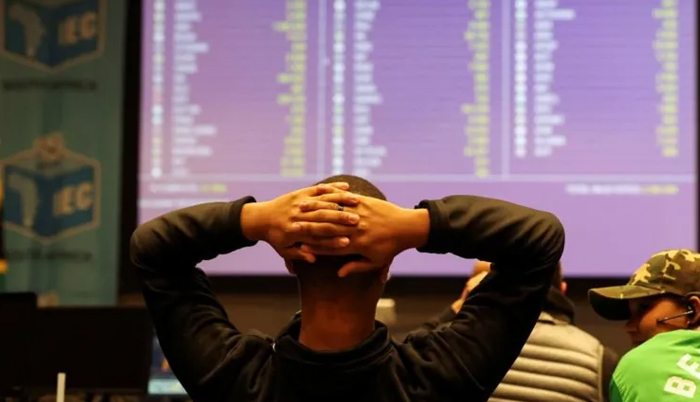
MIDRAND (Gauteng, South Africa), June 1 (NNN-AGENCIES) — South Africa’s ruling party, the African National Congress (ANC), is on course to lose its majority in parliament for the first time since it came to power 30 years ago, partial results from Wednesday’s parliamentary election suggest.
With results from 75% of voting districts counted so far, the ANC is leading with 42%, followed by the Democratic Alliance (DA) with 22%.
The uMkhonto weSizwe Party (MK Party) of former President Jacob Zuma has received 13% of the vote and the Economic Freedom Fighters party, about 9%.
Final results are expected over the weekend.
The online system streaming the election results crashed on Friday morning, leaving poll screens showing zero results.
South Africa’s electoral commission has apologised for the issue and later restored the service.
It said the poll results had not been compromised.
Many voters blame the ANC for the high levels of corruption, crime and unemployment in the country.
The respected Council for Scientific and Industrial Research (CSIR) and the News24 website have projected that the party’s final vote will be around 42%, a big drop from the 57% it obtained in the 2019 election.
This would force it go into a coalition with one or more of the other parties in order to form a majority in parliament.
The DA has liberal economic policies, while both the EFF and MK favour more state intervention and nationalisation, so the choice of partner would make a huge difference to South Africa’s future direction.
South Africans do not directly vote for a president. Instead they vote for members of parliament who will then go on to elect the president.
The initial results show that the ANC is suffering heavy losses to MK, especially in KwaZulu-Natal, where Zuma’s party has been leading with 43% of the vote to the ANC’s 21%.
Zuma caused a major shock when he announced in December that he was ditching the ANC to campaign for MK.
KwaZulu-Natal is the home region of Zuma, and the province with the second-highest number of votes, making it crucial in determining whether the ANC retains its parliamentary majority.
Although Zuma has been barred from running for parliament because of a conviction for contempt of court, his name still appeared on the ballot paper as MK leader.
If MK wins KwaZulu-Natal, it would be a “major upset” and herald the “potential decimation” of the ANC in the province.
The ANC also risks losing its majority in the economic heartland of Gauteng, where the party currently has 36% to the DA’s 29%.
Wednesday’s election saw long lines of voters outside polling stations late into the night across the country.
According to the electoral commission, the last polling station closed at 0300 on Thursday morning local time.
One electoral official in Johannesburg said the queues were reminiscent of the historic 1994 election, when black people could vote for the first time.
Change has been a recurring sentiment, especially among young voters.
Support for the ANC is expected to be higher among the older generation.
A record 70 parties and 11 independents were running, with South Africans voting for a new parliament and nine provincial legislatures.
The DA has signed a pact with 10 of them, agreeing to form a coalition government if they get enough votes to dislodge the ANC from power.
But this is highly unlikely, with the ANC expected to remain the biggest party, putting it in pole position to lead a coalition. — NNN-AGENCIES






